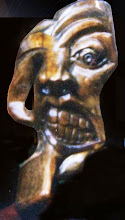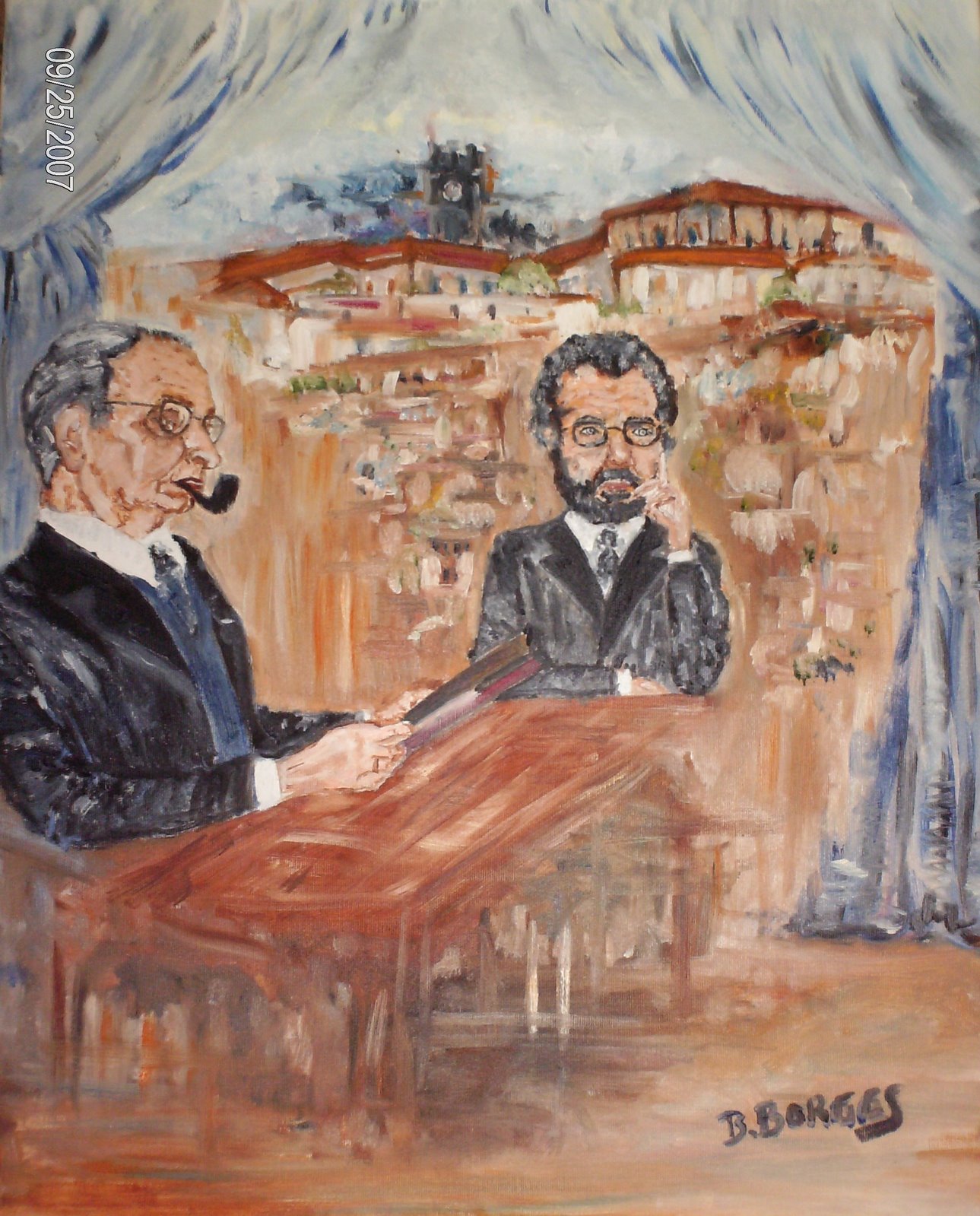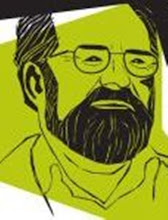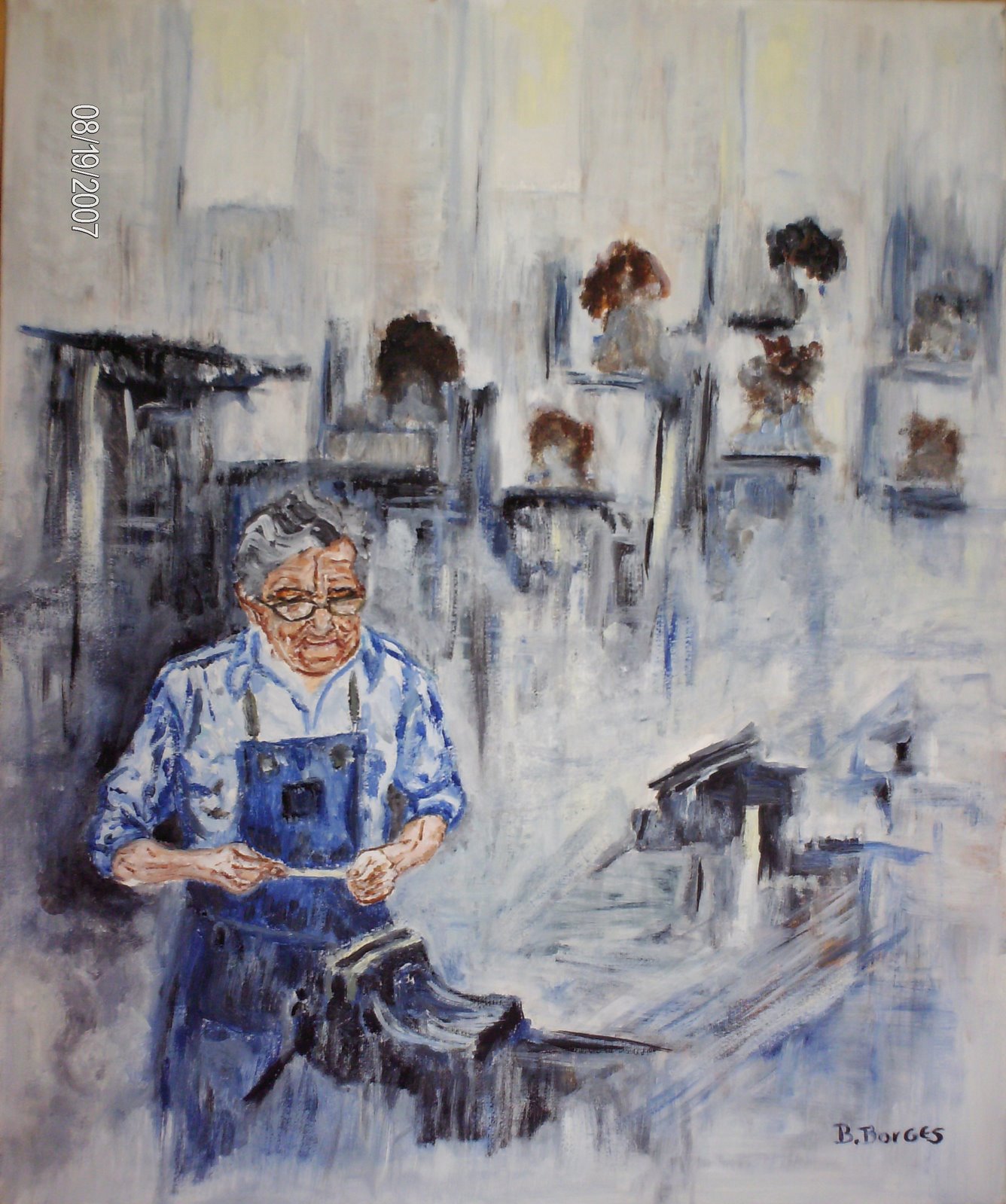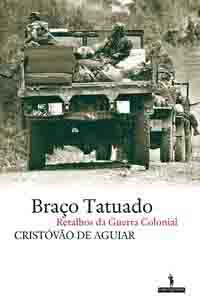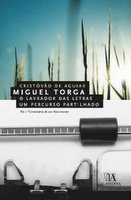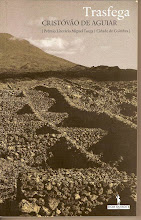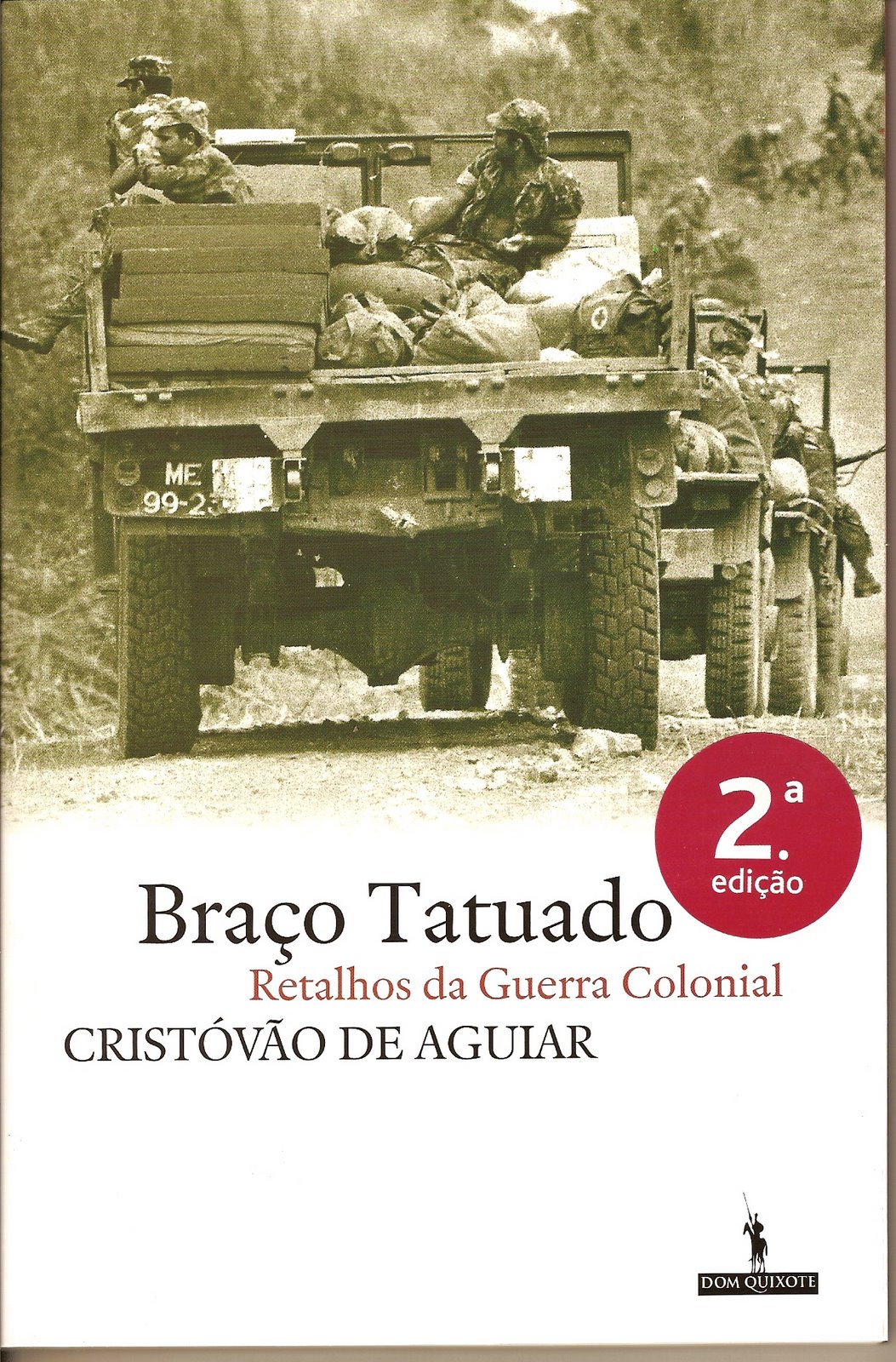"Coimbra, August 24, 1988 - The phone turned mute. The postman does not call, not even once. The wind does not stop. Medicine does not medicate. The headache does not wane. The sun forgot its trade and took a day off. Silence can neither be built nor can it destroy me. Music does not soothe. The newspapers scream that they do not want to be read. Hope does not flounce. The heat has cold. The cold has hunger. The hunger is thirsty. The thirst became sated. The ideas became bleached. The words became demented in a hospice of greenish mildew. The book is crisscrossed in the uterus and does not ask to be born. Friends are dying. The war is born from the innards of black gold. The children refuse to make children and leave no heirs. The daughters likewise, ditto between quotes. Poetry turned tick in a puppy’s fur. Literature got luckier and became part of a coterie. Rain forgot to get soaked. The body is a cup without any spirit of drinking. The eyes committed suicide. The mouth dropped down on the garbage. The hours do not pray. The minutes do not minute nor do they let make minutes for the draft of a dream. The sun became soiled. The frightened sky came down. The nightmare did not get frightened. The dream stopped. The eyes nodded off. The hands asked for reminiscence with interest since they do not pay default interest. The legs became pillars atop the feet. The feet asked for a truce and do not tap-dance. The tap-dance dances on a faraway floor. The faraway distance is still a part of the corseted share. Saudade is an island surrounded by you. The island came to sleep in your bed and got betrothed there. The dead do not get tired of living nor the living of decaying. Death rides a horse on the hands of the clock. The clock feigns to walk, but actually gallops. The days gasp in night horses. The night writhes in the fallen twilight. Clouds clogged our travelling roads. The journey missed the ship and stayed behind at the pier. The train does not stop at the way station that befits me. The ticket that I pulled has a false date. All dates are false; especially the anniversaries’. To anniversary is the conjunctive tense of a non-conjugated indefinite tense. I keep on waiting in front of the mirror for my mirrored image to metamorphose into your image so that I can retire into it... Love does not get tired. So be it!" CRISTÓVÃO DE AGUIAR Relação de Bordo (vol. 1). Porto, Campo das Letras, 1999, pp. 412-413.
quarta-feira, 23 de janeiro de 2013
Coimbra, August 24, 1988. in Relação de Bordo. english version.
Publicado por
Lapa
às
11:33:00
1 comentários
![]()
Secção: COIMBRA, English Versions, Relação de Bordo I
quinta-feira, 10 de julho de 2008
Missing the Sea, by Cristóvão de Aguiar and translated from the Portuguese by Diniz Borges

 Cristóvão de Aguiar was born in Pico da Pedra, S. Miguel, Açores. He studied in Coimbra, where he has taught English. Besides poetry, he has also published various works of fiction and memoirs. He is also represented in various literary anthologies. He still resides in the university city of Coimbra.
Cristóvão de Aguiar was born in Pico da Pedra, S. Miguel, Açores. He studied in Coimbra, where he has taught English. Besides poetry, he has also published various works of fiction and memoirs. He is also represented in various literary anthologies. He still resides in the university city of Coimbra.Missing the Sea
Ships leave the island,
Ships arrive at the island…
—The island is a ship
that ran ashore
in the middle of the ocean
and covered itself with sea mist
and penetrated it self with ocean smell
and became accustomed to being
the ridge of a wave…
I left on a ship…
now I feel the emptiness
of missing the sea…
without the sea, all is borders
and the borders choke me…
(Author, Cristóvão de Aguiar)
(Translated from the Portuguese by Diniz Borges in On a Leaf of Blue—published by University of California, Berkeley)
Publicado por
Lapa
às
18:40:00
4
comentários
![]()
Secção: English Versions, Poemas
terça-feira, 23 de outubro de 2007
A VISIT TO THE SEA, BY CRISTÓVÃO DE AGUIAR.
 I have gone to pay a visit to the sea. I have just gotten back with it captured in my bosom. I deeply breathed it with the adequate conviction in order to captivate it inside myself. I also brought it impressed in my eyes ─ I have looked at myself in the mirror to make sure it did ─ I have seen it bursting in waves of a whiteness of angel’s trumpets… It was actually alone, infuriated and with a surly countenance. I enjoy overtaking it like this. The container sliding off the wharf does not let me lie. As the ship was making for the open sea ─ the prow piercing into that restless ground ─ the billows frisked over in a foam flurry. At that time I was already on top of Boa Viagem (Good Voyage) ridge of mountains with a large deep horizon in front of my eyes. I was longing for its absolute and restlessness voice.
I have gone to pay a visit to the sea. I have just gotten back with it captured in my bosom. I deeply breathed it with the adequate conviction in order to captivate it inside myself. I also brought it impressed in my eyes ─ I have looked at myself in the mirror to make sure it did ─ I have seen it bursting in waves of a whiteness of angel’s trumpets… It was actually alone, infuriated and with a surly countenance. I enjoy overtaking it like this. The container sliding off the wharf does not let me lie. As the ship was making for the open sea ─ the prow piercing into that restless ground ─ the billows frisked over in a foam flurry. At that time I was already on top of Boa Viagem (Good Voyage) ridge of mountains with a large deep horizon in front of my eyes. I was longing for its absolute and restlessness voice.Just after lunch, I had taken my two old chaps with whom I have ridden here and there and started for Figueira da Foz (a city by the sea). We took the old road, more easygoing and humanised.

Since the fast lane has taken up post, the old one turned little by little into a carless road, according to the old fashioned way, but with those wonders that the fast lanes no longer possess.
I have not gone there for a long time…
Publicado por
Lapa
às
18:23:00
1 comentários
![]()
Secção: Colaboração de Cristóvão de Aguiar, English Versions
quarta-feira, 17 de outubro de 2007
THE TWO ROSES, BY CRISTÓVÃO DE AGUIAR.

THE TWO ROSES
I am going to bury the two roses. On account of their already very weak scarlet shade, they had, a long time ago, breathed their last. All this rhymes with homesickness. Not too bad. I miss Her through them: she touched them and arranged them in a flower-pot standing on the desk. By an absolutely inadvertence of hers, she forgot her eyes upon them. As she could have dropped an earring or a ring in a haunted corner... I have just made them cosy in a paper coffin that will carry them to their final flowerbed. First of all, I was careful enough to collect and capture her eyes that remained there strayed as a flock of myriad of lights at night sown on the mountain ridge of São Jorge’s island... Thus, I still get a different breath and a more fortified fire. I do hope that their shroud should be ecological, so that their corollas may rot in peace and their essences may rest and rise to the ethereal flowerbeds where they came from. Later on, they will return with the desire of flourishing again in other or the same stalks, in other beings that may come to be roses, daisies, violets, pansies or anthuriums... For example, the orchids of our reunion in a December still very young, or the chrysanthemums of each end of Sunday afternoon that agonizes first in my eyes before reclining on the horizon. And all the other corollas, folded or single, that She spelled to me, petal by petal, in the gardens that we sow with the fertilizer of affection in the inside of the days! But I, with this incurable habit of wanting to perpetuate everything, was determined to extend them the vigour as I do with things, people, animals and even me ─ I must be a mix of all this, plus the mishap I represent, free and naked, before the mirror of myself... How sweet should it be to a certain sense still not invented to relish the fruit of being eternal! But at least within me, and while life does not deny me the bread of my breath, I believe that I have achieved it. So they stayed, like many other corollas that have been and will some day be, and She herself, past, present and future, conjugated in the unique voice of a single verb, perhaps mixed, regular or irregular, restrictive or non-restrictive, no matter, made flesh and blood, nerves, verses and semen... She only inherited the vivid virtues, transitive or intransitive and some of those other verbs that in the shroud of grammar find its natural bed of a serene and irremissible death. And She, crowned with daisies, shall prevail upon all of them!
Publicado por
Lapa
às
01:58:00
7
comentários
![]()
Secção: English Versions
terça-feira, 9 de outubro de 2007
Crítica Literária de Ruben P. Ferreira a: "A Tabuada do Tempo", de Cristóvão de Aguiar, na Revista Os Meus Livros, N.º 56, de 06-Outubro-2007.
The Arithmetic Table of Time
WRITER HUMANENESS
If in some periods one understands that that year may be 1996, in others the years fly away mingled with numerous references to past epochs, up to the moment of the formation of the convictions and of the first poems, or to the more recent melancholy attacks, amidst lectures in the Faculty. It is a diagram of the days and nights which is kept up in an essentially nostalgic register, at times revealing solved anguishes as time goes by or never. Anguishes for ever. A Time marked by the Author’s internal chronology, by the exposure implemented in the incapacity of becoming autonomous, in the ability of creating a work of art as never before. A time of oblivion combined with the effort, at times abstract, of wording that it is already understood (hidden) in the understanding of himself, of other people and the world.
Ruben P. Ferreira (Trad.)
CLICAR NA IMAGEM PARA LER A CRÍTICA LITERÁRIA

Publicado por
Lapa
às
00:06:00
3
comentários
![]()
Secção: A Tabuada do Tempo, críticas literárias, English Versions
terça-feira, 2 de outubro de 2007
Pré - publicação de excerto do livro: Miguel Torga o "Lavrador das Letras", de Cristóvão de Aguiar. (Português, Inglês e Espanhol)
 Coimbra, November 21st, 1994
Coimbra, November 21st, 1994
The Catholic Church is resolute in converting the heretical author of A Criação do Mundo. (The Creation of the World). It would not be enough the visit of priests, friends of his or mere acquaintances. The Hierarchy understood that for an atheist of a magnitude of Torga only a bishop would suit. In addition, it sent to the hospital a prelate of that status in order to try to convert the Poet… “You know, doctor, God is our Father only one word of yours would be enough for me to give you the absolution. Think, doctor, God is our Father and only one word of yours and…” “Nonsense, sir, I do not need your absolution, not even it would be of any use to me: I will die like this ─ coherent with the life I always lead”…
(Written in English by Cristóvão de Aguiar)
Coimbra, 21 de Nobiembro 1994
La Iglesia Católica resolvió convertir al autor herético de "A Criação do Mundo" (La Creación del Mundo). No sería bastante la visita de sacerdotes, de sus amigos o de meros conocidos. La jerarquía entendía que para un ateo de la magnitud de Torga solamente le satisfaría un obispo... Además, envió al hospital a un prelado de ese estado para intentar convertir al poeta… "Usted lo sabe doctor, Dios es nuestro padre, basta solamente una palabra suya para darte la absolución. Piénselo doctor , Dios es nuestro padre y solamente una palabra suya y…" "…..No, eso es Absurdo, señor, no necesito su absolución, no me serviria de nada , Moriré así ,coherente con la vida que siempre llevé"…
(La traduction en Espanol es de José António Caparros que gentilmente hay enviado por e-mail).
Coimbra, 21 de Novembro de 1994
A Igreja Católica está apostada em converter o herege de A Criação do Mundo. Já não lhe bastava a visita de padres, seus amigos ou conhecidos. A Hierarquia entendeu que, para um ateu da grandeza de Torga, só um bispo... E enviou ao hospital um prelado dessa categoria para o tentar converter... “Sabe, senhor doutor, Deus é Pai e bastaria uma só palavra sua para eu lhe dar a absolvição. Pense, senhor doutor, Deus é Pai, bastava uma palavrinha sua e...” “Qual Pai, senhor, não preciso da sua absolvição, nem ela me valia de nada, hei-de morrer assim, coerente com a vida que sempre levei”...
(Cristóvão de Aguiar)
_Consegui convencer o Escritor a deixar-me publicar este excerto, até agora inédito…
Publicado por
Lapa
às
00:02:00
23
comentários
![]()
Secção: English Versions, Miguel Torga
segunda-feira, 1 de outubro de 2007
I, ISLANDER, CONFESS MYSELF, by CRISTÓVÃO DE AGUIAR

My emigration was not as complete as those of my parents, grandparents and other closer or further relatives: A part-time or permanent Islander always has someone who is his extension who represents him on the other side of the sea. The emigration I undertook always had a metaphorical nature, as suits a writer or a poet, which does not mean it was less real or painful.
Bashful, I raised anchor from my Island in a third-class cabin, heading for Coimbra, the University City. And like real emigrants, I, too, was not able to cut the umbilical cord which she, the Island, always wrapped me in. You can say I emigrated to within, and this “within”, in the course of life, came to have a physical and psychological meaning. The physical one everybody senses as soon as I open my mouth. It is immediately clear that I am a part of the diversity which came to give unity to the well-kept house that is our way of speaking.
I have three places of writing: Coimbra, the Island, and America. In America I write like this: “The hours are more spaced. An expectant silence can be felt in the atmosphere. If it is about to snow, all of Nature shrinks. Everything quietens, waiting for it, like in writing. It stars by opening an instant which is lightened by silence. Then it condenses into flaccid word flakes, and very slowly covers the sheet of the page […]. I have been going to the cemetery to water the flowers I planted at my father’s head. I then sit on the grass, scrupulously mowed, and this, though it does not appear so, makes me place some feelings, still in tears, in their places” […]. In Coimbra: “October ran trailing an autumn drunk in colours and I, who had arrived with an intense smell of sea on my body, remember having felt lost in this expanse of land and land. On the nights in which the bells of the heart tolled in tune, I would grab myself and go to the Penedo da Saudade (the rock of homesickness). I would enter that sanctuary, not to add another verse to those that were already engraved there, but merely to loosen the eyes down the hill in front, that of the Picoto (peak of a mountain). It is filled with uneven sown lights. At a certain point, in the middle, there was a row of them so symmetrical, or was it me that gave them symmetry, for a hair’s breath like the lights of the Island’s dock. On the Island, at another time, I write like this: “All seems wrong already ─ the weather, the people who no longer fit in my affection, the house humid from not being lived-in. Then the spectres start to haunt me […] I go to the cemetery and see on the family grave the portraits of my grandparents and my aunts and uncles […]. I rake my memory and see my brothers and uncles and many others, absent to the land of emigration (some of them call it the Promise Land. Thus, I only feel well when going […]. The village where I was born still shows very living steps to my Golgotha. There, I can achieve neither the peace nor the quiet which I so desire […]
Cristóvão de Aguiar
Published in the Magazine Azorean Spirit
SATA (Air Azores) ─ Summer 2006
Publicado por
Lapa
às
00:15:00
7
comentários
![]()
Secção: Autobiografia, English Versions
TANTO MAR
do qual este poema começou a nascer.
Atlântico até onde chega o olhar.
E o resto é lava
e flores.
Não há palavra
com tanto mar
como a palavra Açores.
Manuel Alegre
Pico 27.07.2006



